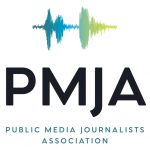Jay Hmielowski and Myiah Hutchens Comment on Political Affiliation, Filter Bubbles and Echo Chambers
University of Florida College of Journalism and Communications Public Relations Assistant Professors Jay Hmielowski and Myiah Hutchens are quoted in “In Volusia, Many Trump Supporters Still Refuse to Believe Biden Won” published in The Daytona Beach News Journal on Nov. 16.
The article focuses on why people believe that Donald Trump is the victor in the recent Presidential election. Social scientists say in part that it has to do with the phenomenon of echo chambers and filter bubbles.


“Some of the problem with media and social media is you’re presented with the most extreme version of the other side,” said Hmielowski. “When you’re watching Fox News, you get the most extreme version of the liberals or when you’re watching MSNBC, you get the most extreme version of the conservatives. And then on Twitter and Facebook, the things that get the most promotions are the things that are the most extreme examples.”
Hmielowski and Hutchens have researched filter bubbles and echo chambers, which they say have always been a part of American society.
“Historically, newspapers and magazines were partisan. When journalism became more professionalized (in the 20th century), the idea of objectivity became more important, and giving facts, that became more important,” Hmielowski said. “The era of the three big television networks, ABC, CBS and NBC, in the 1960s, ’70s and ’80s, produced less polarization, but the startup of Fox News in 1996 led to a cable-news environment that has returned America to its partisan roots. That was exacerbated by the rise of conservative talk-radio hosts such as Rush Limbaugh in the 1990s and into this century websites that cater to people’s viewpoints.”
According to Hmielowski and Hutchens, echo chambers and filter bubbles have always been with Americans and they don’t believe Trump himself has much to do with it.
“Maybe on the margins he made it worse. He might have reached more people and said. ‘lying media’ or ‘fake news,’ and maybe more people thought about that, but that was always a thing in conservative areas. They had lower trust in news than Democrats,” they said. “Because you have a Republican going out there and saying news is fake, CNN is fake, now Democrats and liberals now like these media outlets more, just because Trump doesn’t like them.”
“The difference between filter bubbles and echo chambers is how you get there,” Hutchens said. “An echo chamber is (something) I’ve created myself, so this is me selecting information that’s attitude consisent, that I’m creating my social network through, where I’ve unfriended all the people who disagree with me, but it’s all choices I’m making.”
Hutchens said that a filter bubble involves information that’s arriving because of a social-media algorithm.
“We see less counter-attitudinal information in our social media channels because the algorithm thinks we only want to get information that is like-minded,” she said. “I should point out that nobody lives in a perfect filter bubble or echo chamber. Most of what we talk about now is the degree to which you’re getting like-minded information.”
Hmielowski, Hutchens and Michael Beam of Kent State University, co-authored a study in which they found Republicans and Democrats react differently when confronted by information from outside of their echo chambers or filter bubbles.
“A liberal talking to a conservative, it really had no impact on the media sources they trusted or used. However, when liberals talked to other liberals, it did push them further into an echo chamber or filter bubble. So liberals talking to more liberals made them trust liberal news more and then use it more,” Hutchens said. “Conservatives essentially had the opposite effect. Conservatives talking to conservatives didn’t impact their trust or use of media sources. But when a conservative talked to a liberal, that made them trust their (own news) sources more.”
According to Hutchens, media literacy training is the most valuable way to prepare young people for the critical thinking required of citizens in today’s media ecosystem.
“Teaching them how ads are created to persuade and teaching them what partisan media is … that sort of training can be helpful, especially when it comes to misinformation, so being able to identify fake news, being able to identify when a photograph is being used out of context,” she said. “That, I would argue, from an education perspective is what would be most helpful.”
Category: College News, Trust News
Tagged: Jay Hmielowski Myiah Hutchens
Subscribe to our News Digest


